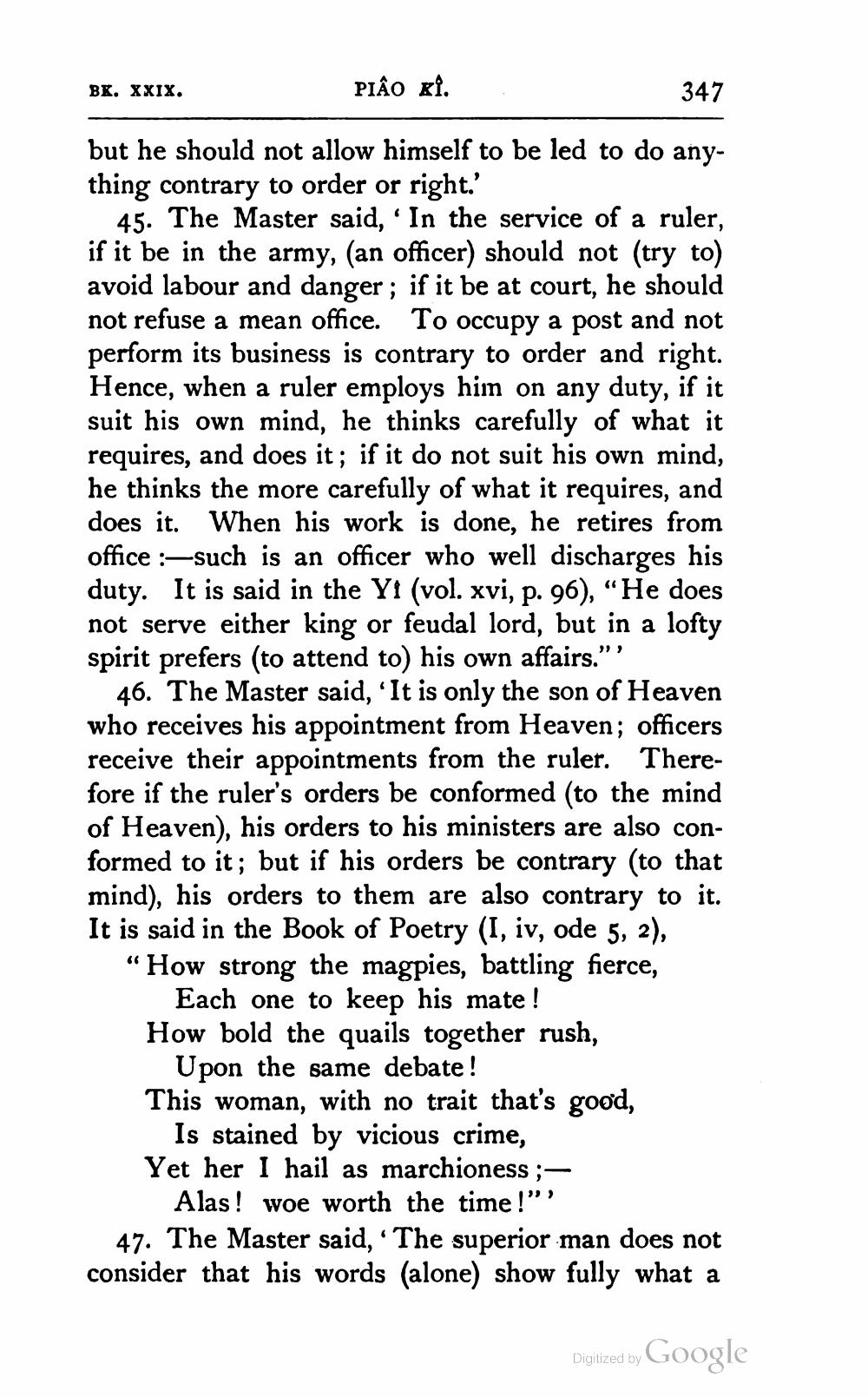________________
BK. XXIX.
PIÃO ki.
347
but he should not allow himself to be led to do anything contrary to order or right.'
45. The Master said, “In the service of a ruler, if it be in the army, (an officer) should not (try to) avoid labour and danger ; if it be at court, he should not refuse a mean office. To occupy a post and not perform its business is contrary to order and right. Hence, when a ruler employs him on any duty, if it suit his own mind, he thinks carefully of what it requires, and does it; if it do not suit his own mind, he thinks the more carefully of what it requires, and does it. When his work is done, he retires from office :-such is an officer who well discharges his duty. It is said in the Yi (vol. xvi, p. 96), “He does not serve either king or feudal lord, but in a lofty spirit prefers (to attend to) his own affairs.”'
46. The Master said, 'It is only the son of Heaven who receives his appointment from Heaven; officers receive their appointments from the ruler. Therefore if the ruler's orders be conformed (to the mind of Heaven), his orders to his ministers are also conformed to it; but if his orders be contrary (to that mind), his orders to them are also contrary to it. It is said in the Book of Poetry (I, iv, ode 5, 2), “How strong the magpies, battling fierce,
Each one to keep his mate! How bold the quails together rush,
Upon the same debate ! This woman, with no trait that's good,
Is stained by vicious crime, Yet her I hail as marchioness ;
Alas! woe worth the time !"' 47. The Master said, “The superior man does not consider that his words (alone) show fully what a
Digitized by Google




